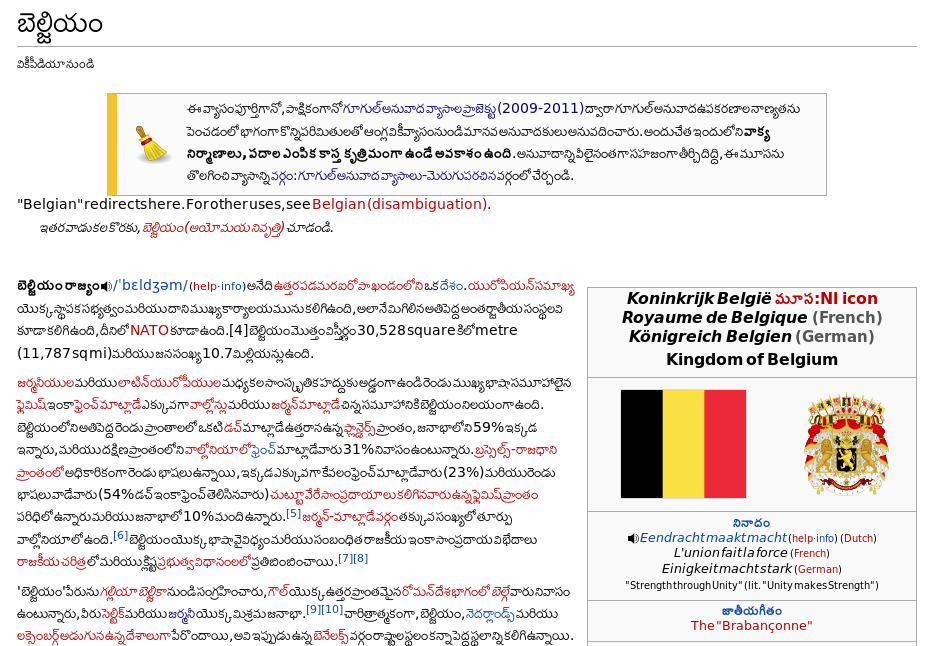Why and Where to Volunteer Your Translating Skills Posted by Jakob Gibbons on Dec 14, 2016 in Archived Posts
Translating a text is one of the best ways to give your language skills an all-around workout, and you’ll never run out of opportunities to do so: all across the world and the Web, people are waiting to put your language learning efforts to good use.
Facing the linguistic pressures of globalization and the digital language divide that separates the linguistic haves from minority language-speaking have-nots, languages and language learners today are faced with unique challenges. Translation is one promising way to meet these challenges on multiple fronts: by translating online texts, learners not only get a language learning boost, but can also help to preserve our global linguistic diversity.
Translation gets kind of a bad rap in the language learning community. Machine translation services often fall short on fully filling linguistic gaps, and simply translating words over and over is no way to truly learn a language (though it may be just enough to help you pass an exam or two).
But translation, when approached as a language learning exercise, can be an effective approach to practicing your active and passive language skills.
That’s because in translating, you’re actively engaging both your first language and the one you’re learning, especially when you’re translating into and thus writing in your target language. Exercises in bidirectional translation, translating entire texts from your target language to your first language and back, are an excellent way to flex every linguistic muscle in your brain.
And if you’re studying a less commonly taught language, your translation exercises could actually play a role in solving a global social problem.
Bridging the Digital Language Divide with Translation
As we’ve discussed in a few recent posts, the gap between the resources and information available to speakers of large, dominant languages and communities that speak an indigenous or minority language — also known as the digital language divide — is one of the biggest obstacles to equitable, sustainable development in the 21st century. Success in today’s global economy means access to information and expertise, from up-to-date neonatal healthcare practices to the simple ability to read job listings, and these things are increasingly hard to come by if the Internet doesn’t speak your language.
When you spread your English knowledge of mechanical engineering by translating a Wikipedia page into Zulu, Tamil, or Guaraní, you’re forcing yourself to engage your active skills in another language. In explaining the history of the Industrial Revolution and the processes of thermodynamics, you’re not only calling on your vocabulary knowledge in Balinese, but also actively practicing conjugating verbs, constructing logical sentences, and communicating in a way that’s culturally accessible to a Balinese-speaking audience.
When you practice your language skills by translating online texts, global society at large also benefits, particularly minority language speakers and their neighbors. Technical expertise on sites like Wikipedia or current events coverage on citizen journalism platforms tend to reach speakers of languages like English, French, Japanese, and Mandarin quickly and efficiently, while rural linguistic minority communities in India, South Africa, and Indonesia are left in the digital dark.
And those doing the translating stand to benefit as much as those enjoying the fruits of such linguistic labor: aside from generally reinforcing language skills like grammar and writing, translation is also a good way to build up skills you can use to translate your language skills into an online side hustle or fund your world travels.
Whether you’re learning a minority or endangered language or a more common choice, there are plenty of opportunities around the web for you to turn your language learning practice into productive volunteer work. Here are a few places you can get started.
Where to Find Volunteer Translation Opportunities Around the Web
- Wikipedia: Translating Wikipedia articles is one of the most widely available opportunities to sharpen your translation skills. Check Wikipedia’s guidelines for translating English articles to other Wikipedias to get started.
- Global Voices: Global Voices is a citizen journalism platform that aims to offer local perspectives in local languages on current events around the world, and they’re always looking for more volunteer translators to help out.
- TED talks: Ever noticed that TED provides subtitles in a huge number of languages? That’s because they make use of an army of online volunteers to transcribe and translate TED Talks.
- Kiva: Kiva is a micro-lending organization that seeks to empower people in developing communities, often in regions where minority or indigenous languages are spoken. They rely on volunteer translators in a variety of languages to translate loan profiles and help ensure that those in need of a microloan are able to communicate that need to potential lenders.
- Per Mondo: Per Mondo helps non-profits working across linguistically diverse regions by connecting them to volunteer translators free of charge.
- Idealist: Idealist is a search platform for searching employment and volunteer opportunities in roles with a social impact. Just search through their volunteer translation opportunities for chances to work on translation projects in nearly any language you can think of.
For beginning learners curious to try their hand at translation, you don’t have to jump straight into the deep end with formal volunteer roles. You can start practicing by simply finding one of your favorite childhood books in translation and translating it back to its original language, or try out translating a page from the original into the language you’re learning.
And for more experienced linguists and translators, organizations like UN Volunteers and Translators Without Borders work with professional translators on projects in many different languages and countries.

Build vocabulary, practice pronunciation, and more with Transparent Language Online. Available anytime, anywhere, on any device.






Comments:
Giorgio:
What?? Please don’t translate a Wikipedia page into a language you are still learning just so you can “practice your language skills”! Translations should only be done into a language you fully master.
Jakob Gibbons:
@Giorgio Actually, Wikipedia in particular is the perfect place to do this! That’s because articles are edited and reviewed by a large team of users who can catch your mistakes, and you can also request an extra proofread before hitting publish. Wikipedia also encourages students to work on translating its articles, and particularly for languages with very few existing articles, a translation with some grammatical errors is infinitely better than no article at all!
But you’re certainly right that beginning learners shouldn’t be too quick to try out translation in a language they haven’t got down yet, which is why most of the other names on this list have a screening process to make sure your language skills are up to the job.
Gary Young:
What I like to do is translate Russian rock/pop songs into English, and often when I can’t find a word I’m looking for, it know it’s in a song somewhere so I play the song in my mind until I find the word.